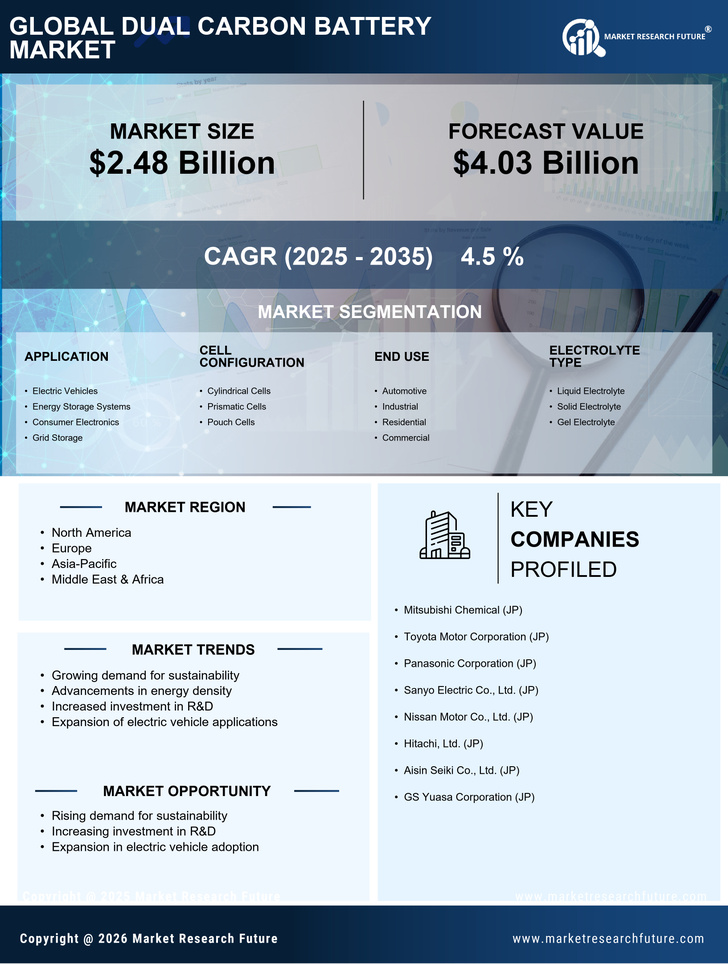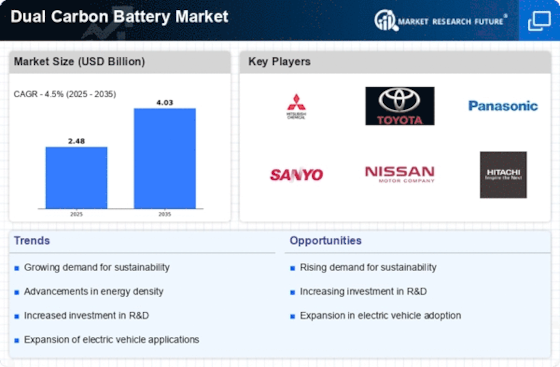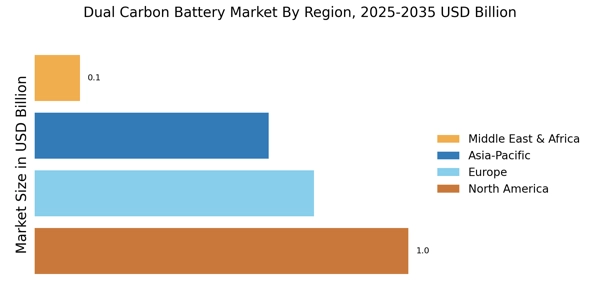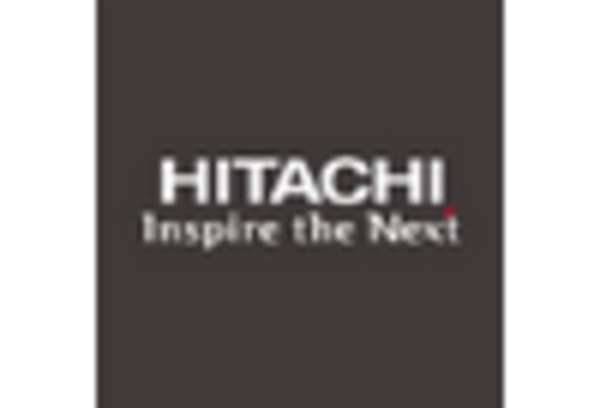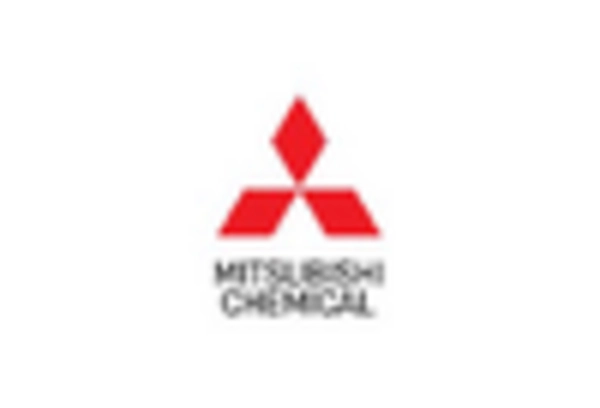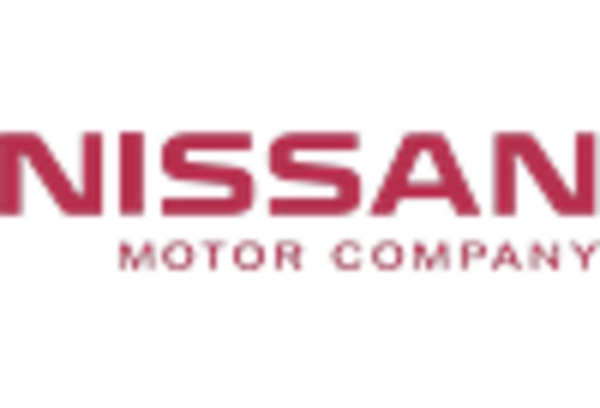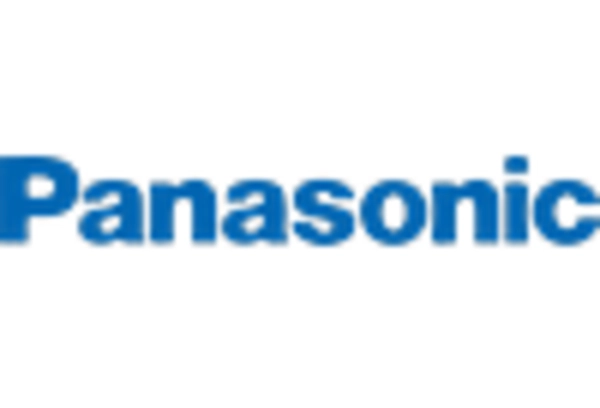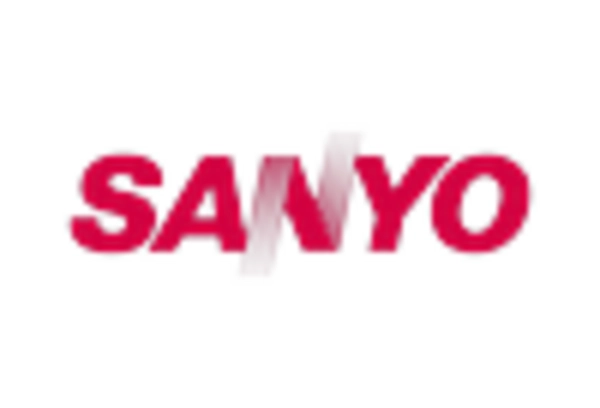Growing Electric Vehicle Market
The burgeoning electric vehicle (EV) market serves as a crucial driver for the Dual Carbon Battery Market. As the automotive sector shifts towards electrification, the demand for efficient and high-performance batteries is escalating. Dual carbon batteries, with their rapid charging capabilities and lower environmental impact, are well-suited for EV applications. The Dual Carbon Battery Market is projected to reach 30 million units sold annually by 2030, creating a substantial opportunity for dual carbon battery manufacturers. This growth is likely to be fueled by consumer preferences for sustainable transportation options and government incentives promoting electric mobility. As the EV market expands, the demand for dual carbon batteries is expected to rise, thereby propelling the overall growth of the Dual Carbon Battery Market.
Advancements in Battery Technology
Technological advancements in battery technology are driving the evolution of the Dual Carbon Battery Market. Innovations in materials science and engineering have led to the development of dual carbon batteries that promise enhanced performance metrics, such as longer cycle life and improved safety. These advancements are crucial as they address the limitations of conventional batteries, particularly in terms of energy density and thermal stability. The market for advanced battery technologies is anticipated to grow at a compound annual growth rate (CAGR) of approximately 15% over the next five years. This growth is indicative of a broader trend towards more efficient and sustainable energy storage solutions. As dual carbon batteries continue to evolve, they are likely to capture a larger share of the battery market, further solidifying their role in the energy landscape.
Environmental Regulations and Policies
The implementation of stringent environmental regulations and policies is a significant driver for the Dual Carbon Battery Market. Governments worldwide are increasingly focusing on reducing carbon emissions and promoting sustainable energy solutions. This regulatory landscape creates a favorable environment for the adoption of dual carbon batteries, which are perceived as a greener alternative to traditional battery technologies. For instance, various countries have set ambitious targets for reducing greenhouse gas emissions, which may lead to increased investments in clean energy technologies, including dual carbon batteries. The market for environmentally friendly battery solutions is expected to expand, with projections indicating a potential market size of USD 50 billion by 2027. Consequently, the alignment of dual carbon batteries with regulatory frameworks is likely to enhance their market penetration and acceptance.
Increased Investment in Renewable Energy
The surge in investment in renewable energy projects is a key driver for the Dual Carbon Battery Market. As nations strive to transition towards sustainable energy systems, significant capital is being allocated to renewable energy infrastructure. Dual carbon batteries are emerging as a viable solution for energy storage in these projects, given their potential for high efficiency and lower environmental impact. Recent reports indicate that investments in renewable energy are expected to exceed USD 1 trillion annually by 2030. This influx of capital is likely to enhance the development and deployment of dual carbon battery technologies, as they align with the goals of energy sustainability. Consequently, the increased investment in renewable energy is anticipated to catalyze the growth of the Dual Carbon Battery Market.
Rising Demand for Energy Storage Solutions
The increasing demand for energy storage solutions is a pivotal driver for the Dual Carbon Battery Market. As renewable energy sources, such as solar and wind, gain traction, the need for efficient energy storage systems becomes paramount. Dual carbon batteries, with their potential for high energy density and rapid charging capabilities, are well-positioned to meet this demand. According to recent estimates, the energy storage market is projected to reach USD 200 billion by 2026, indicating a robust growth trajectory. This surge in demand is likely to propel the adoption of dual carbon batteries, as they offer a sustainable alternative to traditional lithium-ion batteries, which are often criticized for their environmental impact. Thus, the rising demand for energy storage solutions is expected to significantly influence the growth of the Dual Carbon Battery Market.
